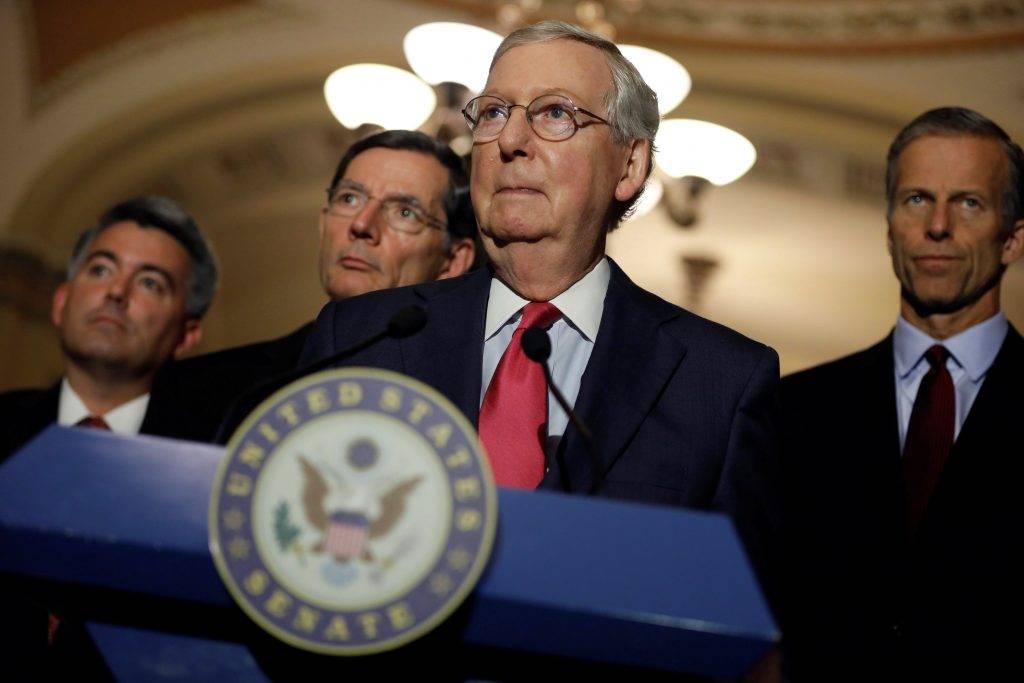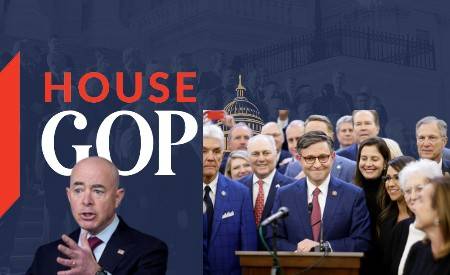House Republicans took a significant step on Sunday, January 28, 2024, by releasing two articles of impeachment against Homeland Security Secretary Alejandro Mayorkas. The first article accuses Mayorkas of a “willful and systemic refusal to comply with the law.” House Homeland Security Chairman Mark Green, a Republican from Tennessee, asserted that the articles present a “clear, compelling, and irrefutable case” for Mayorkas’ impeachment. Green further alleged that Mayorkas has deliberately and systematically disregarded immigration laws enacted by Congress, breaching the public trust in the process.
The impeachment move is rooted in the House committee’s accusations that Mayorkas knowingly made false statements to Congress and the American people while obstructing congressional oversight of his department. These allegations set the stage for a historic attempt to remove Mayorkas from office, signaling heightened tensions between House Republicans and the Homeland Security Secretary.
Secretary Alejandro Mayorkas Accused of “Breach of Public Trust”
The second article of impeachment focuses on Alejandro Mayorkas’ alleged “breach of public trust.” According to Chairman Mark Green, Mayorkas stands accused of knowingly providing false information to Congress and obstructing the oversight responsibilities of the legislative branch. The claim suggests a deliberate undermining of the public’s faith in the Homeland Security Secretary’s ability to uphold the law and fulfill his duties.
The accusations come amid ongoing criticism from Republicans regarding the Biden administration’s handling of immigration issues, particularly the record-high numbers of arrivals at the U.S.-Mexico border. The House Republicans’ move to impeach Mayorkas underscores their dissatisfaction with the perceived failures in immigration enforcement and the desire to hold the Homeland Security Secretary accountable for what they consider a breach of public trust.

Republican Criticism over Southern Border Crisis
House Republicans have consistently voiced their concerns over the Biden administration’s response to the Southern border crisis. Last year, the House Committee on Homeland Security, led by Chairman Mark Green, accused Mayorkas in a 20-page resolution of high crimes and misdemeanors, emphasizing a willful disregard for immigration law. Green, echoing the sentiments of many House Republicans, argued that the committee has a constitutional duty to impeach Secretary Alejandro Mayorkas.
The heightened tensions and calls for impeachment align with broader dissatisfaction among Republicans, who have blamed Mayorkas for the surge in arrivals at the U.S.-Mexico border, citing a staggering 2.5 million migrants in the previous year. As the impeachment process unfolds, it remains a focal point of political discourse, emphasizing the challenges and divisions surrounding immigration policy in the United States.

DHS Dismisses Impeachment as a Political Ploy by House Republicans
Federal data has revealed that the Department of Homeland Security (DHS) responded to the articles of impeachment against Secretary Alejandro Mayorkas with a memo, denouncing the effort as a mere distraction orchestrated by Republicans for political gain. The memo challenges the legitimacy of the impeachment move, accusing the GOP of pursuing a political agenda rather than addressing substantive concerns related to Mayorkas’ actions as Homeland Security Secretary. The Department’s stance adds a layer of complexity to the unfolding political drama surrounding Mayorkas.
The DHS’s characterization of the impeachment as a distraction underscores the deep partisan divisions surrounding immigration policy and raises questions about the motivations behind the move. As the drama continues to unfold, the clash between House Republicans and the Department of Homeland Security adds another layer of intensity to the already contentious debate over immigration reform.
Secretary Alejandro Mayorkas Advocates for Immigration Law Reform
In response to the impeachment efforts, Secretary Alejandro Mayorkas himself has emphasized his long-standing belief that the country’s immigration laws are flawed and in need of renewal to address evolving challenges at the border. Mayorkas argues that for the past three decades, the existing laws have not adequately adapted to the changing landscape of immigration, necessitating comprehensive reform. The Homeland Security Secretary’s perspective sheds light on his motivations and actions, suggesting a commitment to addressing systemic issues rather than intentional wrongdoing.
However, Secretary Alejandro Mayorkas contends that Republicans in the House have consistently rejected opportunities to collaborate on fixing the immigration laws. He claims that GOP members, in alignment with former President Donald Trump, have chosen to deny the Biden administration a victory by refusing to assist in the development of a new immigration law. This political maneuvering, as Mayorkas describes it, further complicates the landscape of immigration policy, adding a layer of political strategy to the already intricate debate.

Senate Agrees on Border Crisis Fix as House Republicans Vow Opposition
Senate Navigates Towards Border Crisis Resolution
While the House engages in impeachment proceedings, the Senate appears to have made strides toward addressing the border crisis. Reports suggest that an agreement has been reached among Senate members on what they term as a “resound fix” for the challenges at the U.S.-Mexico border. This development signals a potential breakthrough in the ongoing struggle to find bipartisan solutions to the immigration issues plaguing the nation.
Despite this progress in the Senate, Speaker Mike Johnson, representing House Republicans, has issued a statement vowing to ensure that any border crisis resolution bill arriving in the House is dead on arrival. The stark opposition from House Republicans highlights the deep-rooted ideological differences and the persistent political maneuvering surrounding immigration policy. As the Senate attempts to forge a path forward, the House-Senate divide sets the stage for continued political tension, leaving the fate of comprehensive immigration reform uncertain.
Table of Contents
Discover more from OGM News NG
Subscribe to get the latest posts sent to your email.














